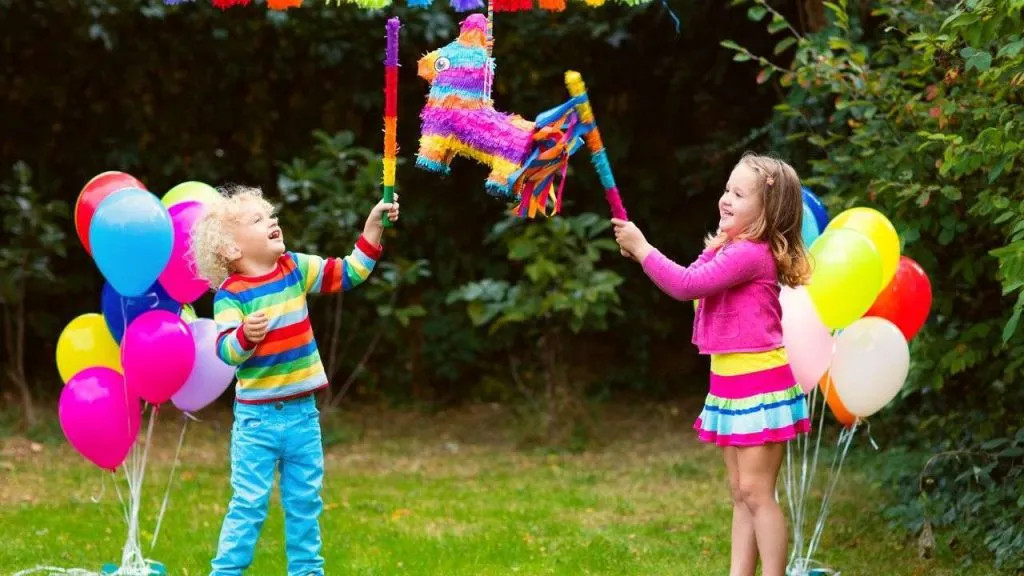Birthdays are universal milestones, celebrated across the globe with unique customs and heartfelt melodies. In Spanish-speaking cultures, birthdays are vibrant occasions filled with warmth, family, and of course, music. Learning to say “Happy Birthday” in Spanish and understanding the traditions surrounding it offers a delightful glimpse into Hispanic culture. This guide will walk you through everything you need to know to celebrate birthdays the Spanish way, focusing on the iconic Happy Bday In Spanish Song, regional variations, and festive customs.
Saying “Happy Birthday” in Spanish: Feliz Cumpleaños
The most fundamental phrase to learn is “Happy Birthday” itself. In Spanish, this is expressed as “Feliz Cumpleaños.” Mastering this phrase is your first step in embracing Spanish birthday celebrations.
Let’s break down the pronunciation to help you and your family say it confidently:
- Feliz: pronounced as feh-LEES (stress on the second syllable)
- Cumpleaños: pronounced as COOM-play-AHN-yohs (stress on the third syllable)
Practice saying it aloud and encourage repetition, especially if you’re teaching children. Incorporate the phrase into greetings, birthday cards, or when practicing the happy bday in spanish song. Remember that while slight pronunciation variations exist across Spanish-speaking regions (for instance, the “z” in “Feliz” might sound like “th” in Spain – feh-LEETH), the standard pronunciation will be widely understood.
Unpacking “Feliz Cumpleaños”: Meaning and Significance
Understanding the meaning of “Feliz Cumpleaños” adds depth to your greeting. “Feliz” directly translates to “happy.” “Cumpleaños” is formed from “cumple” (completes) and “años” (years), literally meaning “years completed” or “birthday.” Therefore, “Feliz Cumpleaños” is a sincere expression of joy for the completion of another year of life.
In Hispanic cultures, birthdays are deeply rooted in family and community values. They are occasions to strengthen bonds, share joy, and reflect on cherished memories. Saying “Feliz Cumpleaños” isn’t just a formality; it’s a heartfelt expression of goodwill and connection.
With this foundation, let’s move on to the heart of the celebration: the happy bday in spanish song. Learning the lyrics and variations will truly immerse you in the festive spirit.
 happy birthday lyrics in spanish
happy birthday lyrics in spanish
The Traditional “Happy Birthday Song in Spanish”: Cumpleaños Feliz
Just like in English, there’s a traditional happy bday in spanish song sung to the same familiar tune. It’s called “Cumpleaños Feliz,” and it’s incredibly easy to learn. Here are the standard lyrics:
Cumpleaños feliz,
Cumpleaños feliz,
Te deseamos (name),
Cumpleaños feliz.
The structure is almost identical to the English version. “Te deseamos” translates to “we wish you,” and you simply insert the birthday person’s name where “(name)” is indicated. Singing “Cumpleaños Feliz” is a fantastic way to practice the “Feliz Cumpleaños” phrase while sharing a cheerful birthday moment.
Listen to “Happy Birthday (Spanish Version)” by Birthday World to get the melody.
Regional Variations of the Happy Birthday Song in Spanish
The beauty of the Spanish language lies in its rich regional diversity. Just as dialects and customs vary, so do versions of the happy bday in spanish song. Let’s explore a few interesting regional adaptations:
Argentina: “Que los cumplas feliz”
In Argentina, while “Cumpleaños Feliz” is understood, a slightly different version is more common:
Que los cumplas feliz
Que los cumplas feliz
Que los cumplas (name)
Que los cumplas feliz.
The key difference is the phrase “Que los cumplas feliz,” which translates to “May you have happy birthdays” or “May you fulfill them happily.” It’s a subtle but distinct Argentine touch.
Venezuela: Adding “Ay Que Noche Tan Preciosa”
Venezuelan birthday celebrations often begin with a beautiful serenade before transitioning to “Cumpleaños Feliz.” This serenade is “Ay Que Noche Tan Preciosa” (“Oh, What a Precious Night”):
Ay que noche tan preciosa
Es la noche de tu día
Todo lleno de alegría
En esta fecha natal
Tus más íntimos amigos
Esta noche te acompañan
Te saludan y desean
Un mundo de felicidad
Yo por mi parte deseo
Lleno de luz este día
Todo lleno de alegría
En esta fecha natal
Y que esta luna plateada
Brille su luz para ti
Y ruego a Dios porque pases
Un cumpleaños feliz
This song, filled with heartfelt wishes and imagery of joy and light, sets a warm and celebratory tone before “Cumpleaños Feliz” is sung.
Spain: Pronunciation Nuances
In Spain, the “Cumpleaños Feliz” lyrics are typically the same as the traditional version.
Cumpleaños feliz,
Cumpleaños feliz,
Te deseamos (name),
Cumpleaños feliz.
The regional variation here is primarily in pronunciation. As mentioned earlier, in some parts of Spain, the “z” in “Feliz” is pronounced like a “th” sound (feh-LEETH). Singing the Spanish version in Spain might involve this slight phonetic difference.
Mexico: “Las Mañanitas” – A Morning Serenade
Mexico boasts a unique and deeply cherished birthday song tradition called “Las Mañanitas.” This isn’t a variation of “Happy Birthday” but a distinct serenade, traditionally sung in the early morning to awaken the birthday person with joyful wishes:
Estas son las mañanitas,
Que cantaba el Rey David,
Hoy por ser día de tu santo,
Te las cantamos a ti.
Despierta, mi bien, despierta,
Mira que ya amaneció,
Ya los pajaritos cantan,
La luna ya se metió.
Qué linda está la mañana,
En que vengo a saludarte,
Venimos todos con gusto,
Y placer a felicitarte.
El día en que tú naciste,
Nacieron todas las flores,
Y en la pila del bautismo,
Cantaron los ruiseñores.
Ya viene amaneciendo,
Ya la luz del día nos dio,
Levántate de mañana,
Mira que ya amaneció.
“Las Mañanitas” is a beautiful and poetic song, rich in cultural significance. While not a direct translation of “Happy Birthday,” it serves a similar purpose in Mexican birthday celebrations, expressing warm morning greetings and joy.
Listen to “Las Mañanitas para niños pequeños” by Niños Jugando for a child-friendly version.
These are just a few examples of the diverse happy bday in spanish song traditions across Spanish-speaking countries. With over 20 Spanish-speaking nations, there are likely even more regional nuances and songs to discover!
Tips for Teaching “Cumpleaños Feliz”
Making learning the happy bday in spanish song fun and engaging is key, especially for children. Here are a few ideas:
- Incorporate it into routines: Sing “Cumpleaños Feliz” in the morning or during playtime, replacing the name with family members or toy characters.
- Create a lyric matching game: Write out Spanish and English lyrics (or just key phrases) and have kids match them.
- Use visual aids: Find videos online with lyrics on screen or create your own lyric sheets with colorful illustrations.
- Make it interactive: Encourage clapping, dancing, or simple actions to go along with the song.
Exploring Spanish Birthday Traditions
Beyond the happy bday in spanish song, numerous vibrant traditions make Spanish-speaking birthdays unique. Introducing these customs adds another layer of cultural understanding and fun to your celebrations.
 happy birthday lyrics in spanish
happy birthday lyrics in spanish
Piñatas: A Burst of Fun and Treats
The piñata is a quintessential element of many Latin American birthday parties, particularly in Mexico. These colorful papier-mâché containers, often shaped like stars, animals, or popular characters, are filled with candy, small toys, and sometimes fruit.
Children take turns trying to break the piñata with a stick while blindfolded, as others sing and cheer. When it finally bursts open, there’s a joyful scramble for the treats that spill out. For younger children, “pull-string” piñatas are a safer alternative, where kids pull ribbons to release the goodies.
Birthday Cakes with a Wish
Birthday cakes are a universal symbol of celebration. In Spanish-speaking countries, the cake tradition is similar to many others. Family and friends gather around a candle-lit cake and sing the happy bday in spanish song. The birthday person then blows out the candles, making a silent wish.
Quinceañera: A Milestone Celebration
The “quinceañera” (or “Fiesta de Quince Años”) is a grand and significant celebration marking a Hispanic girl’s 15th birthday. It symbolizes her transition from childhood to young womanhood and is a major social and family event, especially in Latin America and Hispanic communities in the United States.
Quinceañeras are often elaborate, including a formal reception with music, dancing, a lavish feast, and religious elements. The “quinceañera” wears a beautiful gown and may have a court of honor composed of family and friends.
Serenades: Waking Up to Music
In some Latin American countries, especially Mexico, serenades are a cherished birthday tradition. Early on the morning of the birthday, friends, family, or even a hired mariachi band may gather outside the birthday person’s home to sing songs like “Las Mañanitas,” waking them up with music and birthday wishes.
Incorporating Spanish Birthday Traditions
Bringing Spanish birthday traditions into your own celebrations is a fantastic way to create memorable, culturally enriching experiences for your family. Here are some ideas:
- Host a Piñata Party: Buy or make a piñata and fill it with treats for your child’s next birthday. It’s an exciting activity and a taste of Latin American culture.
- Learn and Sing Spanish Birthday Songs: Make “Cumpleaños Feliz,” “Las Mañanitas,” or regional variations part of your birthday singing repertoire.
- Spanish-Themed Party: Choose a country like Mexico or Spain as a party theme. Decorate accordingly, serve Spanish foods, play music, and perhaps even try some simple flamenco or salsa steps.
- Flamenco or Latin Dance Fun: Introduce your child and their friends to basic steps of salsa, merengue, or flamenco for a fun and active cultural experience.
Saying “Happy Belated Birthday” and “Happy Early Birthday” in Spanish
Life happens, and sometimes we miss a birthday. To say “Happy Belated Birthday” in Spanish, use:
- Feliz cumpleaños atrasado. (“Atrasado” means late or belated).
- You can also say Feliz cumpleaños con retraso (“with delay”).
To apologize for the lateness, you can add:
- Perdón por el retraso or Disculpa por el retraso (both mean “Sorry for the delay”).
If you want to wish someone a “Happy Early Birthday,” say:
- Feliz cumpleaños adelantado. (“Adelantado” means early or in advance).
Express excitement for the upcoming celebration with:
- ¡Estoy emocionado/a por tu cumpleaños! (“I’m excited for your birthday!”)
Final Thoughts
Learning the happy bday in spanish song and exploring Spanish birthday traditions is a joyful way to connect with Hispanic culture and language. It’s educational, fun, and creates meaningful experiences for families. Embrace these traditions, sing the songs, and ¡Feliz Cumpleaños!
Continue your Spanish language journey with our articles on Colors in Spanish, Numbers in Spanish, the Spanish Alphabet, and Spanish Lullabies.
Frequently Asked Questions
What does “Feliz cumpleaños” mean?
“¡Feliz cumpleaños!” is the Spanish equivalent of “Happy Birthday!” It literally translates to “happy completion of a year,” emphasizing the significance of another year of life.
How do you say “Happy Birthday and best wishes” in Spanish?
To convey “Happy Birthday and best wishes,” you can use:
- Feliz cumpleaños y los mejores deseos. This is a common and direct way to express your good wishes.
How to thank someone for birthday wishes in Spanish?
Express your gratitude for birthday wishes with:
- Muchas gracias por tus deseos de cumpleaños. (Thank you very much for your birthday wishes.)
- Te agradezco por tus buenos deseos. (I appreciate your good wishes.)
- Gracias por acordarte de mi cumpleaños. (Thank you for remembering my birthday.)
How do you wish someone happiness in Spanish?
To wish someone happiness in Spanish, you can say:
- Te deseo felicidad. (I wish you happiness.)
- Que tengas mucha felicidad. (I hope you have a lot of happiness.)
- Que seas feliz. (May you be happy.)
- Te deseo toda la felicidad del mundo. (I wish you all the happiness in the world.)

